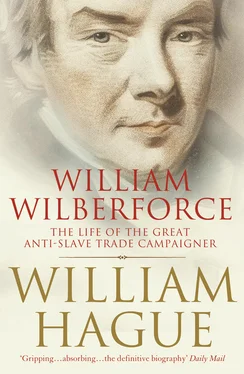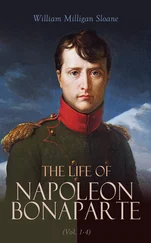1 ...6 7 8 10 11 12 ...37 By any standards, therefore, the late 1770s were a time of intensifying partisanship, stridency and bitterness in domestic politics. As the government of Lord North looked steadily shakier and as Germain came under increasingly furious attack, the morale of the political opposition rose correspondingly. In February 1779 there was exultation among the opposition following the acquittal of Admiral Keppel, whose court martial after a badly-managed encounter with the French fleet resulted in the revelation that the inadequate arming of the Royal Navy was the direct result of the government’s own incompetence. Crowds took to the streets and broke the windows of government ministers in celebration of the huge embarrassment. For there was more to the political atmosphere of the time than arguments over a war that had gone wrong: there was also a feeling that the mismanagement and lack of coordination of the war effort pointed to systemic failings in the British state, and that the absence of any responsiveness to hostile public opinion on such a vital issue was a sign of corruption and excessive place-seeking. It was thus not just the ministry but the entire system of government which came under attack, and not just the ministers but the powers of King George III himself. Almost a third of the House of Commons and much of the House of Lords held titles, sinecures or pensions in the gift of the King and his ministers; almost half of the House of Commons sat for ‘pocket boroughs’ which were controlled by a small number of men, and sometimes literally bought by the Treasury itself. Failure in war opened the way for these practices to be attacked. The Whig aristocracy feared that the powers of the Crown had grown to the extent that the balance of the constitutional settlement arrived at in the aftermath of the Glorious Revolution of 1688 had been upset, and now Edmund Burke led their calls for ‘economical reform’, involving the abolition of swathes of sinecures and of the expensive additions to the royal household.
Outside Parliament, movements such as the Yorkshire Association of the Reverend Christopher Wyvill arose, campaigning for the reform of parliamentary representation and the holding of elections every three years instead of seven. There was a feeling that great change was in the air, and would soon be conceded. In April 1780 the opposition MP John Dunning succeeded in carrying his famous motion ‘That the powers of the Crown have increased, are increasing, and ought to be diminished’ on the floor of the House of Commons. In London there was a feeling of political crisis; overseas the war went on unabated. If any time in the eighteenth century was likely to draw a thoughtful and ambitious young man into politics, then this was it.
It was in the highly charged political atmosphere of the winter of 1779–80 that Wilberforce, finding little need to stay in permanent residence in Cambridge when so few academic demands were made of him, began paying regular visits to London and venturing into the public gallery of the House of Commons. At that time the public gallery was only fifteen feet above the floor of the Commons, supported by pillars reaching down among the benches. The entire chamber measured only fifty-seven feet by thirty-three, and had been uncomfortably crowded on busy days ever since the Act of Union with Scotland in 1707 had swelled the number of MPs to 558. A visitor to the gallery was thus readily enveloped in an often hot and boisterous atmosphere, all the more so as the debates about the American War and the nature of the constitution raged only yards from where he was sitting. As he looked beneath him, Wilberforce would have seen the great figures of late-eighteenth-century British politics locked in oratorical combat. But it was alongside him in the gallery that winter that he was to find a friend who, for the next five years at least, would be one of the greatest influences on his life. For also sitting in the gallery, with an attitude of earnest studiousness which Wilberforce would have found hard to match, was William Pitt, son of the great Chatham, and ultimately known to history as William Pitt the Younger.
Pitt and Wilberforce must have looked and seemed a strange couple as they sat observing the debates. For one thing, Pitt must have been nearly a foot taller than Wilberforce. He also had, even at that age, an aloof manner towards people he did not know well, suggestive of his always being conscious of being his father’s son, but also the product of his natural diffidence: ‘I am the shyest man alive,’ 26he would say to Wilberforce once their friendship had developed. Such shyness evidently soon evaporated in the warmth of Wilberforce’s friendly disposition. They had been barely acquainted at Cambridge, Pitt having been largely confined within the walls of Pembroke College by a more demanding tutor and an eagerness for classics and mathematics. Yet soon Wilberforce, the unknown son of a Hull merchant, and Pitt, the son of the most revered British statesman of the eighteenth century, were firm friends.
It would be obvious from the events of later years that there was a genuine warmth in the friendship between Pitt and Wilberforce. As it happened, there was also a happily complementary nature to the advantages each of them possessed if they wished to become active in politics: Pitt had plentiful connections, widespread recognition and a famous name, but no money; Wilberforce had exactly the opposite. In years to come, Pitt would enjoy Wilberforce’s generous hospitality. For now, it was Wilberforce who found in Pitt an additional enticement to the world of politics. Pitt had firm views, being strongly in favour of the prevailing fashions of economical and parliamentary reform, and he followed his deceased father in his opposition to the American War. He had an appreciation of great oratory, being thrilled to hear a formidable speech by Burke that winter – ‘I had no idea until now of his excellence’ 27– but critical of some speakers in the House of Lords – ‘Paltry matter and a whiney delivery’. 28He also had impressive and immediate connections, with Fox himself coming into the gallery to join this young observer in analysing the debates – ‘But surely, Mr Fox, that might be met thus …’ 29The extent to which this friendship and such conversations persuaded Wilberforce of the attractions of entering Parliament cannot be known, but it is clear that by the time he went down from Cambridge in the spring of 1780 he was resolved, like his friend, to enter Parliament at the forthcoming general election if he could.
Neither Pitt nor Wilberforce could countenance delay. Great events were at hand. The outcome of the war was in the balance, the House of Commons was becoming harder to control, and a general election was due by 1781 at the latest – one in which the North administration might lose a significant number of seats. Pitt was training at the Bar because he needed a source of income; Wilberforce had no need of such trifles. Both of them wanted to get into Parliament, and fast. Where and how could two young men approaching twenty-one years of age go about it?
Their age, which would seem precocious for a political career in later centuries, was no barrier. In the House of Commons about to be elected there would be fully a hundred Members under the age of thirty. *Since MPs were entirely unpaid and were generally able to live on a private income, most of them had no need of an alternative career beforehand, and since most electorates were small and buyable there was no need to spend many years building up support and recognition, as would become necessary in the days of a universal franchise. Two individuals as famous as Pitt and as wealthy as Wilberforce were highly likely to be able to get into the Commons, but that still required the careful selection and handling of an appropriate constituency; since neither of them belonged to the main parties of government or opposition, nor to the great landed families that controlled many of the seats, the exercise would require a certain amount of ingenuity or personal expense.
Читать дальше











